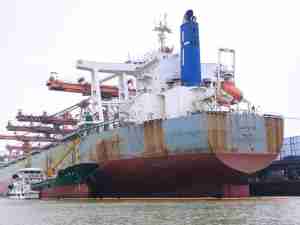Brazil’s first oil auction in 2 years seen as referendum on nation
By: Reuters | Oct 07 2015 at 01:01 AM | International Trade
RIO DE JANEIRO - As Brazil prepares for its first sale of oil exploration rights in nearly two years on Wednesday, the auction is shaping up to be a mini-referendum on the willingness of investors to bet on the future of an industry under pressure and a Brazilian economy in turmoil.
Not only has the price of oil fallen more than 50 percent since the last auction, slashing sector revenue and potential profit, Brazil’s principal oil company, state-run Petroleo Brasileiro SA, is mired in a giant price-fixing, bribery and political kickback scandal.
And with $130 billion in debt and a backlog of existing projects, Petrobras, as the company is known, has not said if it will bid. In all previous auctions Petrobras, alone or as a member of a group, was responsible for half or more of sales.
Meanwhile, with Brazil’s economy in its worst recession in eight decades, Brazil’s national petroleum association, the IBP, and leading government and opposition politicians are seeking changes to auction and other rules they blame for holding back their battered industry and limiting investor interest.
“The auction will be emblematic of the power of Brazil to attract investment,” said Delcídio Amaral, a senator from Rousseff’s ruling Workers’ Party who is leading efforts to change Brazil’s oil laws.
“I’m certain that the auction will be a vote of confidence in the country,” added Amaral, whose efforts are opposed by much of his party. “But there is no question that there is a need for change.”
Others are not so confident.
“I’ve never seen so little interest,” said Paulo Valois, an oil lawyer with L.O. Baptista in Rio de Janeiro. “I doubt that many of the companies that signed up will make any bids.”
A total of 36 companies from 17 countries - including Petrobras, ExxonMobil Corp, BP Plc and Royal Dutch Shell Plc - are registered for the auction.
A lack of bids could add pressure from the IBP and Amaral to change rules that boosted state control of the industry after giant offshore discoveries south of Rio de Janeiro in 2007.
The ANP, which will run the auction, as well as President Dilma Rousseff have resisted changes to national content rules and concession contracts that many in the oil industry say raise costs and heighten political risk.
Wednesday’s auction will offer 266 exploration and production blocks in 10 sedimentary basins.
The greatest interest is expected for offshore areas in the Sergipe Basin.

